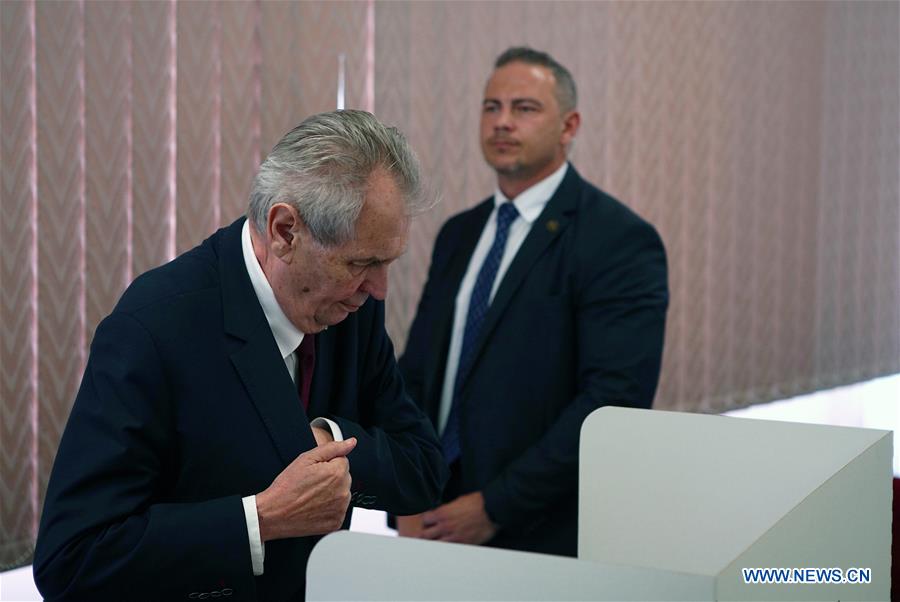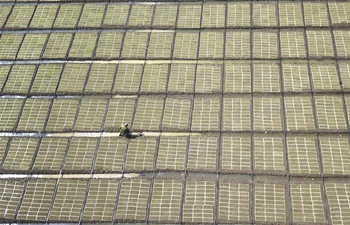 ?
?Czech President Milos Zeman (Front) votes at a polling station in Prague, the Czech Republic, May 24, 2019. The two-day elections to the European Parliament, the fourth in a row, started in the Czech Republic on Tuesday afternoon. In this year's election, Czechs will choose 21 MEPs from a record number of 39 parties, movements and their coalitions that nominated more than 840 candidates. The final election results will be released on Sunday only after the voting in all EU member states ends. (Xinhua/Dana Kesnerova)
PRAGUE, May 24 (Xinhua) --The two-day elections to the European Parliament, the fourth in a row, started in the Czech Republic on Tuesday afternoon.
Top politicians, including President Milos Zeman and Prime Minister Andrej Babis were among the first voters.
Zeman voted at a polling station in an elementary school in Luziny neighborhood of Prague. After casting votes with his wife, Zeman called on all citizens to take part in the European elections, citing it as a test of satisfaction with the Czech politics.
"Whether we like it or not, the European election is also a test of satisfaction with the domestic politics," Zeman said.
He said if people do not go to the polling stations, they risk that others would and "will make the hell to them on the earth".
The Czech Republic is known as one of the most Eurosceptic nations in the 28-member EU. Voters turnout was only 18.2 percent in the previous European parliament election five years ago.
For this year's elections, the polling stations will close at 22:00 Friday and reopen on Saturday when the elections continue from 08:00 to 14:00.
The Czech Republic joined the EU in 2004. According to Czech law, any citizen aged over 18 can vote, so there are some 8.4 million eligible voters in the country with a population of 10.5 million.
In this year's election, Czechs will choose 21 MEPs from a record number of 39 parties, movements and their coalitions that nominated more than 840 candidates. The final election results will be released on Sunday only after the voting in all EU member states ends.











